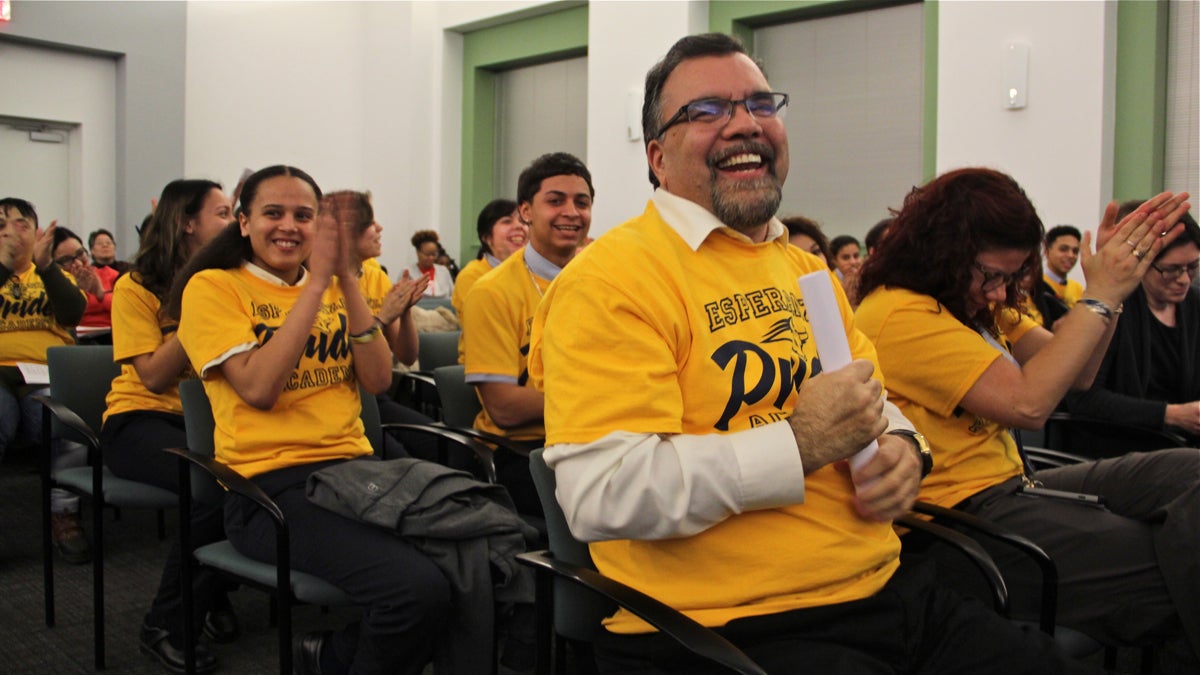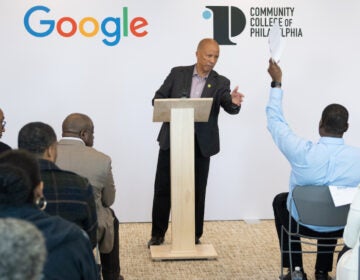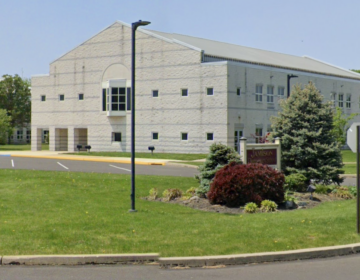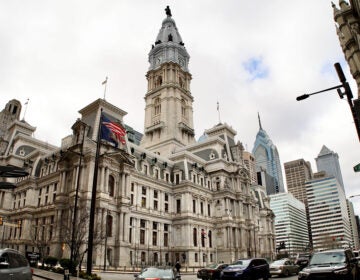Two Philly charters singled out for excessive special-ed suspension rates in 2011-12
Listen
Philadelphia Electrical and Technical High School is one of two Philadelphia charters that suspended students with disabilities at a disproportionately high rate in 2011-12
The Civil Rights Project at UCLA has flagged two Philadelphia charter schools for suspending special-education students disproportionately and at especially high rates.
Based on 2011-12 federally reported data, the Civil Rights Project found that Philadelphia Electrical and Technical Charter High School and Esperanza Academy Charter High School were among 10 charters nationally with the largest such a disparities.
Philadelphia Electrical and Technical suspended students with disabilities about 25 percent more of the time than it did those without.
In fact, special-ed students were the only ones that the charter suspended that year.
Esperanza Academy Charter High School also was flagged for suspending special-needs students 19 percentage points more than it did the rest of its student population.
“Any school that suspends students with disabilities at such a substantially higher rate raises concern that it may be failing to meet these students’ educational needs,” said the report. “Moreover, it appears that, instead of providing needed behavioral supports, the school is suspending these students because of behavior that is a manifestation of their disability.”
Area advocates for students with disabilities agreed.
“When you see that many suspensions, it’s a big red flag,” said Jennifer Clarke, executive director of The Public Interest Law Center. “We haven’t really had data like this until this report.”
The UCLA study found that charter schools suspend students with and without disabilities at slightly higher rates overall compared with traditional public schools.
In an era where schools engage in high-stakes academic competition, Clarke said this sort disproportionate treatment can have strategic advantages.
“When a kid has a disability it costs more and it maybe requires more efforts,” she said. “So if a charter can get rid of kids with disabilities, those kids are going to end up in the school district.”
While spotlighting outliers, the report acknowledged that “it is important to remember that, like non-charter schools, most charter schools are not high-suspending.”
The report also hopes to dispel what it sees as a false dichotomy.
“The choice is not between punitive policies that instill order on the one hand and conditions of chaos on the other,” it said. “The data suggest that lower-suspending effective alternatives are abundant.”
PE&T was founded by the city’s politically influential Local 98 of the International Brotherhood of Electrical Workers. On spring break this week, school leaders did not return calls for comment.
Esperanza CEO David Rossi disputed the notion that his school does not equitably serve students with special needs, citing graduation rates of more than 95 percent for that population.
“Our goal is to prevent misbehavior,” said Rossi. “A suspension rate is really an input. We look at outputs.”
Rossi did not dispute the accuracy of the 2011-12 data, but said more recent data show a reversal of the gap portrayed in those figures. In 2013-14, he said, the school suspended 9.6 percent of its special-education students while suspending traditional students at a 10.6 percent rate.
He said the charter’s philosophies and policies regarding discipline have not changed significantly in recent years, but couldn’t attribute a reason for the shift in the numbers.
“Every parent strives to have their student in a safe atmosphere. Every parent strives to have their student, if they do receive discipline, restored back into the environment,” he said. “You’ll see that we get high grades on student retention, meaning students stay with us from year to year, and that’s even with our special education students.”
 David Solivan, director of student development at Esperanza Academy, celebrates the SRC’s approval of a new elementary school. (Emma Lee/WHYY)
David Solivan, director of student development at Esperanza Academy, celebrates the SRC’s approval of a new elementary school. (Emma Lee/WHYY)
The district’s school quality system gives Esperanza high marks for having a low out-of-school suspension rate and a high annual student retention rate in 2014-15.
Both of the charters mentioned in the UCLA report were renewed by the SRC in 2014.
After multiple postponements, the SRC renewed Philadelphia Electrical and Technology’s charter after an investigation of widespread cheating on standardized tests in 2009-2011.
It will be up for renewal again in 2017.
The SRC renewed Esperanza Academy’s charter after asking the school to revise its student discipline standards as related to zero-tolerance policies.
Esperanza was also awarded a new charter for an elementary school in February. All but SRC chair Marge Neff voted to approve.
Commissioner Feather Houstoun said there were no red flags in Esperanza’s recent application based on special education services.
It would have been useful to have the information presented in UCLA’s report when making recent decisions, Houstoun said, adding she would want to dig deeper into the context behind the numbers.
“I think you’d have to look at a lot more information to understand it fully,” she said.
WHYY is your source for fact-based, in-depth journalism and information. As a nonprofit organization, we rely on financial support from readers like you. Please give today.





